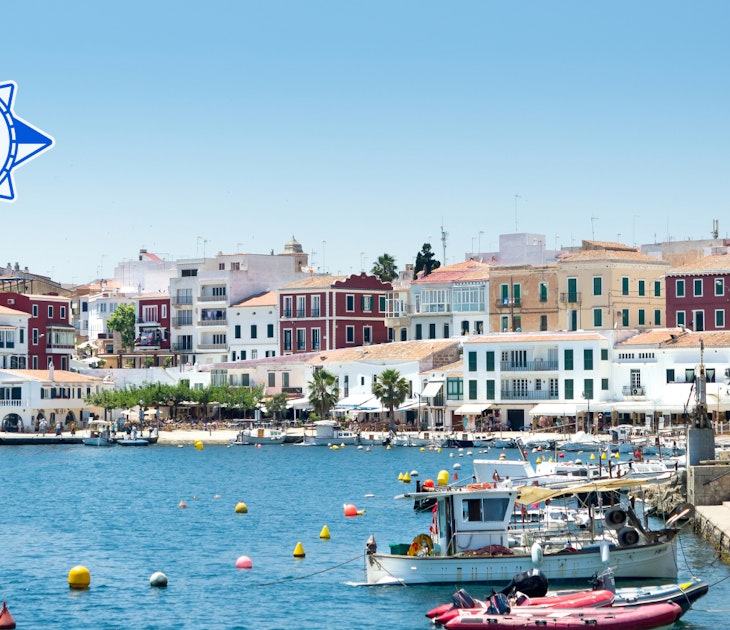
The long road to Machu Picchu for Inca Trail porters

Oct 30, 2018 • 5 min read

It has been industry standard for porters not to get to see Machu picchu. Let's change that © Bailey Freeman / Lonely Planet
The Inca Trail is one of the most famous treks in the world, hosting thousands of hikers each year looking to experience the historic path that stretches across the southern Peru's rugged peaks and cloud forests. The final payoff after several days of clambering across rocky terrain at high altitudes: passing through the Sun Gate, with the lush grounds of Machu Picchu opening up before you.
- placement: fullWidth
- path: articles/in-content-top
- possible size: [970, 250], [970, 90], [728, 90], [300, 250], [320, 50], [1, 1],
- targeting:
{ "url": "the-long-road-to-machu-picchu-for-inca-trail-porters" }
But this experience isn’t always shared among everyone in the group, specifically the people who make sure you get there.

Peru’s national regulations state that trekking groups on the Inca Trail can consist of 42 people maximum: 16 hikers, two guides, and the required assistance crew of porters and cooks (which, depending on the size of the group, can number up to 24 individuals). These porters, normally locals from the surrounding highland communities, share a wide range of responsibilities on the trail and carry all types of gear, from tents to cooking pots to latrines; without them, many wouldn’t be able to access the trail in a safe, environmentally responsible or timely manner. However, industry standard has long dictated that these men who share the journey with so many visitors don't actually get to see Machu Picchu themselves.
This happens for a few reasons. Generally, porters depart from their groups at the campsite just prior to the last leg of the hike, leaving trekkers to continue on to Machu Picchu and then descend to the nearby town of Aguas Calientes by bus. The porters leave at this time either to catch a specific train designated to hold camping gear before continuing on home to their communities, frequently located in rural areas far from the trail head, or to head back to Aguas Calientes to prepare for their next trip. When they’re off the clock, many don’t return to see Machu Picchu due to the large personal cost to book transport and entry to the site for themselves and their families. This combination of factors has left many porters, some who have worked on the trail for over 15 years, without seeing its ultimate destination.

- placement: fullWidth
- path: articles/in-content-middle
- possible size: [970, 250], [970, 90], [728, 90], [300, 250], [320, 50], [1, 1],
- targeting:
{ "url": "the-long-road-to-machu-picchu-for-inca-trail-porters" }
This situation on the Inca Trail highlights an egregious example of disconnect between the tourism industry and Peruvian communities; foreigners pay to admire one of the world’s most renowned cultural sites, and those who actually share this heritage are virtually denied access. But it’s not all bad – some are working to right this wrong and to have lasting impact on how trekking industry supports its local employees.
In 2017, Exodus Travels began arranging for its porters to visit Machu Picchu, offering tours given in Quechua – many of the porters’ first (and for some, only) language – and covering all the costs associated with the trip. Maritza Chacacantas, Deputy Manager of Treks with the adventure management service company PEAK, oversees all Exodus’ treks and acts as supervisor for all porters, guides and horsemen; Chacacantas is intimately familiar with the trail herself, having been one of the first female guides leading groups back in 2000. “I feel happy, proud of the company I work with. The locals, the porters, are as important as the client. I want to keep doing this project – everyone from Cuzco and the surrounding communities should be able to visit Machu Picchu.”

The porters’ visit to this historic site marks a moment when past and present collide; everyone gathers at the initial look-out point near the guard house, some donning a traditional Andean poncho for the perfect selfie in front of the expansive ruins. Adrian Jiménez Suma, a guide from nearby Ollantaytambo, gathers the group close to begin his explanation, his Quechua contrasting with the surrounding Spanish- and English-language tours. Jiménez now guides groups, but he began his career in tourism as a porter.

“A lot of the young guys work as porters and dream of becoming guides," says Jiménez. "When I was a porter, I learned to value life, to take care of our environment and to take care of our culture. I also saw that we are rich in tradition, and that we should feel proud to be Peruvian Quechua speakers. Porters show how strong the Andean people are and how the culture lives in them.”
- placement: native
- path: articles/in-content-native
- possible size: [f, l],
- targeting:
{ "url": "the-long-road-to-machu-picchu-for-inca-trail-porters" }
Santiago Gutierrez, leader of this particular group of porters hailing from the small mountain township of Poques, has worked on the trail for eight years. “We had never visited, this group, and now it’s our turn,” he says. Pedro Quispe, also from Poques, has worked as a porter for five years. “We had seen videos of Machu Picchu in parts, but never the whole thing," says Quispe. "It makes me really happy to have seen it all.”

Exodus has noted that other companies have since followed suit with the Machu Picchu initiative, a step in the right direction towards creating a more sustainable and equitable Inca Trail. In 2003, Peru passed the Porters Law aimed to stop exploitation of workers who historically had little legal protection. The law states that porters can’t carry over 20kg (44lbs) with 5kg of that reserved for personal items, and that they must be paid at least S/. 44 per day (roughly USD $14). Many porters are also seasonal farmers, and the income from the trail makes a significant impact on lives at home when crops aren’t ready for harvest; fair pay for hard work is essential.

While companies do pay a fine if they are discovered to be violating the Porters Law, it still happens. When you are booking your Inca Trail trip, be conscientious of where your money is going. If the package seems abnormally cheap, it’s likely the porters (and other local employees) aren’t getting paid a fair wage. Ask questions regarding porter pay and carrying load, and check to see if the business provides the porters with quality trekking gear free of charge. Once you’re on the trail, be respectful of the environment (clean up your trash!), and tip your porters and guides.
Bailey Freeman traveled to Peru with support from Exodus Travels. Lonely Planet contributors do not accept freebies in exchange for positive coverage.
- placement: fullWidth
- path: articles/bottom
- possible size: [970, 250], [970, 90], [728, 90], [300, 250], [320, 50], [1, 1],
- targeting:
{ "url": "the-long-road-to-machu-picchu-for-inca-trail-porters" }
Explore related stories
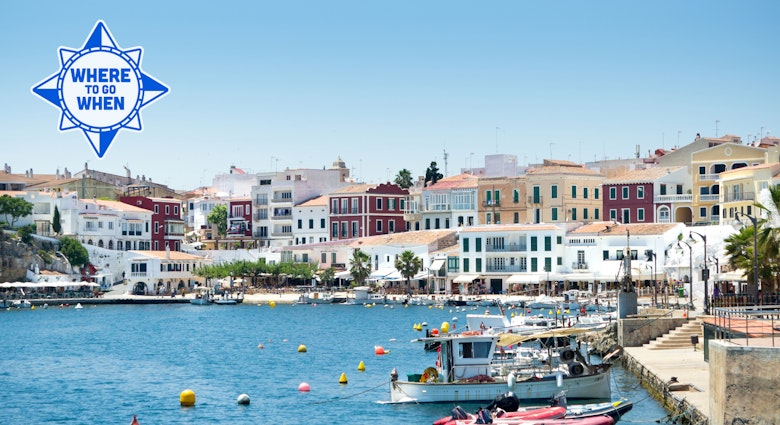

 PhotographyHe launched the #vanlife frenzy - now he's swapped it for an off-grid cabin
PhotographyHe launched the #vanlife frenzy - now he's swapped it for an off-grid cabinNov 5, 2020 • 8 min read

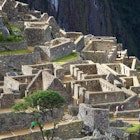 ArtFrom Machu Picchu to Notre Dame: 25 of the world's at-risk cultural places
ArtFrom Machu Picchu to Notre Dame: 25 of the world's at-risk cultural placesNov 1, 2019 • 3 min read


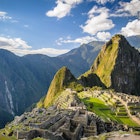 Sustainable TravelMinding Machu Picchu: how to see Peru’s most famous ruins responsibly
Sustainable TravelMinding Machu Picchu: how to see Peru’s most famous ruins responsiblyJan 21, 2018 • 6 min read
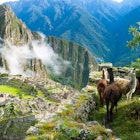
 Wildlife & NatureUltimate travel list: Lonely Planet's top 10 sights in the world
Wildlife & NatureUltimate travel list: Lonely Planet's top 10 sights in the worldAug 17, 2015 • 6 min read
